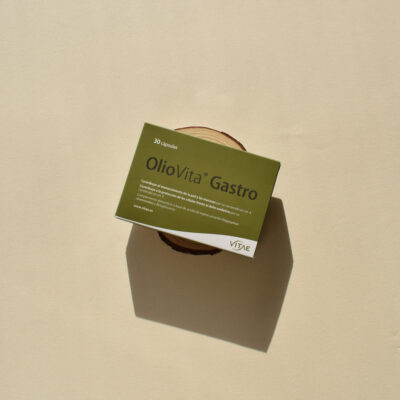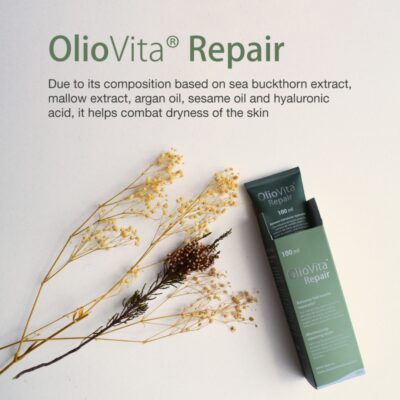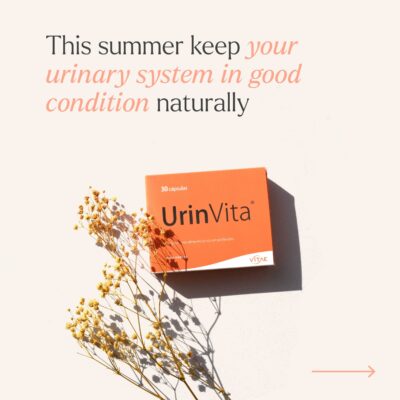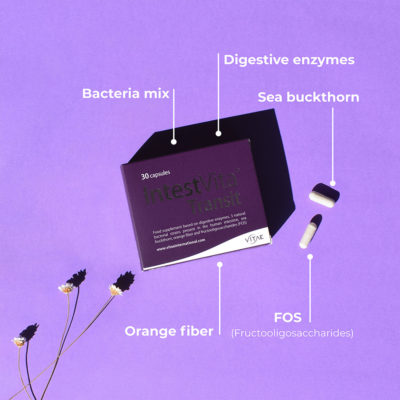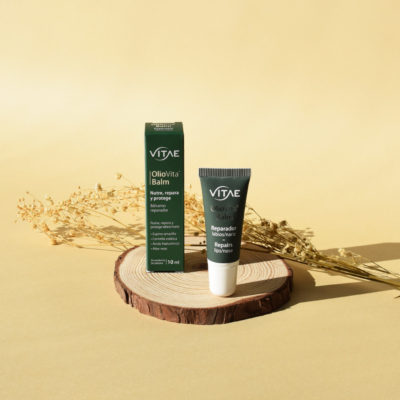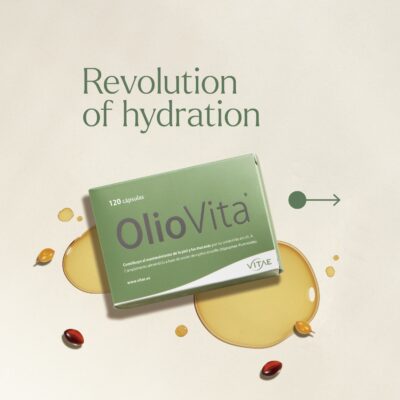Did you know that while many natural ingredients are regularly touted for their moisturising effects on the skin and mucous membranes, the remarkably potent Omega 7—found in sea buckthorn oil—still receives little attention?
This oil, supported by multiple scientific studies, offers deep hydration that leaves the skin noticeably softer, more elastic, and radiant. It is extracted from the berries of the sea buckthorn shrub and is available in two forms: oral and topical application.
We particularly favour the oral route as it works from within to hydrate the deepest layers—something no cream can match.
Those who have tried it unanimously agree that nothing compares in terms of hydration for the skin and mucous membranes. Thanks to its internal mechanism of action, it improves hydration of the eyes, nose, mouth, intimate areas, and all skin surfaces—working from the inside out.
What makes Omega 7 from sea buckthorn so special?
The sea buckthorn (Hippophae rhamnoides), a shrub native to the coasts of Asia and Europe (and also present in North America), has developed a unique bioactive composition to survive in extreme environments.
Its berries have been valued for centuries in Tibetan traditional medicine for their powerful anti-inflammatory and analgesic properties, benefiting both skin and mucous membranes.
The oil extracted from its berries and seeds is noteworthy for its exceptional content of Omega 7 (palmitoleic acid)—a monounsaturated fatty acid with regenerative and nourishing properties:
-
Stimulates cellular renewal and reinforces the skin barrier.
-
Provides deep hydration to the skin and mucous membranes.
-
Protects against oxidative stress and free radicals.
-
Improves the elasticity, firmness, and radiance of facial and body skin.
In addition to Omega 7, its composition—rich in vitamin E, carotenoids, and flavonoids—makes this oil a comprehensive ally for maintaining skin health and beauty from within.
Omega 7 and skin health
Omega 7, scientifically known as palmitoleic acid, is a monounsaturated fatty acid that works from within to nourish, hydrate, and regenerate the skin. It also plays a key role in caring for mucous membranes (ocular, oral, vaginal, gastric, and intestinal), supporting their integrity and protection against external aggressions.
Benefits of Omega 7 for the skin (palmitoleic acid)
-
May help slow down skin ageing by maintaining deep hydration and improving elasticity, smoothness, and radiance—especially beneficial for mature skin.
-
Multiple studies have shown that regular intake helps reduce the appearance of deep wrinkles and improves overall skin texture.
-
Sea buckthorn oil—Omega 7’s natural source—is rich in antioxidants, helping protect the skin from photo-ageing caused by UV radiation and oxidative damage induced by stress, pollution, or smoking.
Contraindications of Omega 7
Although most people tolerate Omega 7 well, there are certain situations in which caution or consultation with a healthcare professional is advisable before using supplements or foods rich in this fatty acid:
-
Pregnancy and breastfeeding: Insufficient conclusive studies exist regarding safety during these stages—precaution is advised.
-
Metabolic disorders: Individuals with insulin resistance, type 2 diabetes, or liver diseases should consult their doctor before taking Omega 7 supplements.
-
Drug interactions: May interfere with cholesterol-lowering medications or certain hormonal treatments.
-
Food allergies: Although rare, some people may react to sea buckthorn components or supplement excipients.
If in doubt, consult a specialist in nutrition or integrative medicine before starting Omega 7 supplementation.
Composition of sea buckthorn oil
Sea buckthorn oil stands out for its unique nutritional profile—rich in essential fatty acids, natural antioxidants, and phytonutrients that directly benefit the skin, mucous membranes, and immune system.
Monounsaturated and polyunsaturated fatty acids
-
Sea buckthorn seeds deliver valuable fatty acids including linoleic acid (Omega 6), alpha-linolenic acid (Omega 3), and oleic acid (Omega 9).
-
The fruit’s oil features especially high concentrations of palmitoleic acid (Omega 7)—a fatty acid with potent regenerative and anti-inflammatory capabilities.
Antioxidants
The antioxidants in sea buckthorn protect fatty acids and cell membranes from oxidative stress caused by the sun, pollution, and ageing. Stand-out compounds include:
-
Vitamin E (toco- and tocotrienols): stabilises membranes and combats free radicals.
-
β-Carotene (vitamin A precursor): essential for skin, vision, and immune health.
-
Lycopene and other carotenoids: shield skin from solar damage and premature ageing.
-
Vitamin C: stimulates collagen synthesis and enhances skin brightness.
-
Folic acid: crucial for cell regeneration and red blood cell production.
-
Flavonoids: help neutralise UV radiation and improve microcirculation.
The synergy among carotenoids, tocoferols, and flavonoids amplifies the oil’s antioxidant and reparative effects.
Natural Omega 7 supplements: allies for your skin
Various natural food supplements rich in Omega 7 are available in today’s market. To choose the most suitable option, it’s essential to seek advice from a healthcare professional such as a doctor or pharmacist.
Our recommendation is to select products that use high-quality sea buckthorn oil, particularly in oral capsule form. This type of supplement works from within to provide deep, sustained hydration to both the skin and mucous membranes.
Dosage and usage guidelines
-
Recommended dosages vary depending on health status and specific goals.
-
Most studies have observed dermatological benefits with daily doses ranging from 250 to 500 mg of palmitoleic acid.
-
To facilitate absorption and maximise efficacy, take the supplement with a main meal containing healthy fats (e.g., olive oil or avocado).
-
Capsules are common and convenient for precise dosing. Continuous use for at least 4 to 8 weeks is recommended to start noticing effects on skin, mucous membranes, and overall balance.
Always consider consulting a healthcare professional before beginning supplementation, particularly if you are pregnant, breastfeeding, or on medication.
When to increase your Omega 7 intake (via natural foods or supplements)
There are certain life stages and conditions in which boosting Omega 7 intake—through diet or supplements—may be particularly beneficial:
-
Persistent dryness of the skin or mucous membranes (e.g., eyes, mouth, nose, intimate areas, gastrointestinal tract).
-
Menopause: hormonal changes often reduce natural hydration levels.
-
Skin ageing: after age 40, the skin loses elasticity and becomes more prone to wrinkles and dehydration.
-
Chronic inflammatory diseases (e.g., ulcerative colitis, gastritis): Omega 7 can support mucosal health.
-
Prolonged use of antihistamines or other medications that tend to dry mucous membranes and skin.
-
Exposure to very dry environments, sun, or pollution: these factors damage the skin barrier and accelerate oxidative stress.
In such scenarios, turning to natural sources like sea buckthorn oil—via functional foods or supplements like OlioVita capsules—can make a noticeable difference to skin health and comfort from the inside out


